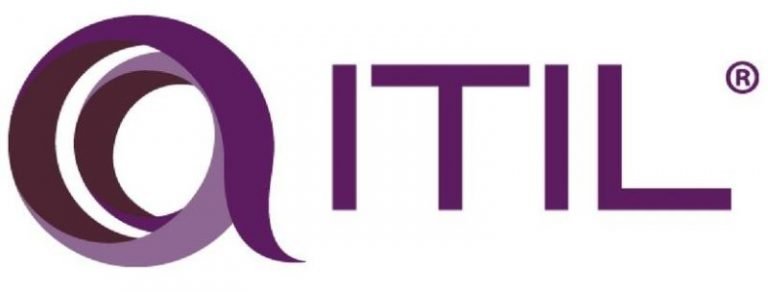
Introduction to Cloud Services
The cloud has existed for almost 20 years. It began modestly, almost as an afterthought, like with most breakthroughs.
However, what started as a different approach to doing some fundamental computer tasks developed into a substitute for data centres as well as on-premise gear and software. The true allure of cloud services lies in its capacity to provide customers with previously unattainable levels of power, flexibility, and affordability compared to only a few years ago.
Cloud service management is challenging and complex. The market is filled with an infinite amount of cloud services, and there are even more methods to use them. In addition to learning about cloud services, those in charge of obtaining and maintaining them also need to learn about managing new operating models, redefining supplier relationships, adjusting to new working practices, and altering consumer engagement with IT.
The Importance of Cloud Procurement Strategy
Business and IT executives need to develop their tactics and plans to take advantage of the multitude of opportunities provided by the cloud to accomplish their own goals and objectives if they want to stay in the game, much alone advance.
Anyone in need of a vendor-neutral, user-centric direction on gaining a practical grasp of how cloud procurement and technology may support and integrate with larger company strategy and functions can opt for the ITIL Acquiring and Managing Cloud Services course in London and also in our virtual courses.
The goal of this course is to provide businesses with a better understanding of the, opportunities, difficulties and issues associated with acquiring and using cloud services. As the cloud becomes more and more integrated into corporate operations, achieving organisational goals depends on ensuring optimal value in both procurement and delivery. These objectives are the focus of this course.
The training will assist you in:
- Analysing possible advantages and accessible solutions with a vendor-neutral mindset
- Efficiently recognising, choosing, and providing optimised cloud services
- Encouraging value co-creation by using the ITIL 4 framework to successfully acquire and integrate cloud services
- Adopting an end-to-end cloud procurement user journey that is customer-focused
Who Should Take This Course?
Participants who work on developing cloud strategies, setting up cloud operational models, and continuously providing services using cloud-based resources and services.
Advantages for You
Applying the most commonly used best practice framework in the world to purchase and use cloud services will provide you with invaluable insights.
Advantages for Your Company
A deeper comprehension of the implications of utilising cloud services, including how to appropriately utilise them to deliver within set risk, financial, and regulatory limitations and maximise value to the organisation.
You’ll discover how to:
Analyse possible advantages and accessible solutions with a vendor-neutral mindset.
- Efficiently recognise, choose, and provide optimised cloud services.
- Encourage value co-creation by using the ITIL 4 framework to successfully acquire and integrate cloud services.
- Adopt an end-to-end cloud procurement user journey that is customer-focused.
Prerequisites and Exam Goals
Formal prerequisites don’t exist. Though not required, having a functional understanding of IT is preferred, and it is usually beneficial to know about ITIL.
The goal of the ITIL Acquiring and Managing Cloud Services course via virtual online e-learning is to give applicants best practices advice on how to leverage the cloud’s capabilities to find and seize opportunities, control risks, and accomplish their intended business goals. Additionally, it aims to give the applicant the know-how and practical abilities needed to develop, align, and incorporate core ITIL framework ideas into the cloud user journey.
The ITIL 4 Acquiring and Managing Cloud Services exam determines if the candidate can sufficiently comprehend and apply the ideas presented in the publication to align and integrate important ITIL framework components with a “cloud services user journey.”
Regardless of sector, industry, or cloud maturity, anyone in need of vendor-neutral, user-centric guidance on building a practical understanding of how cloud procurement and technology can integrate with and support broader business strategy and functions should take this ITIL Acquiring and Managing Cloud Services course in London.
This training program is perfect for anyone in need of assistance in gaining a realistic grasp of how cloud procurement and technology may complement and integrate with larger business objectives.
Why Cloud Services Management Matters
Even seasoned business owners and C-Level executives can make several blunders when it comes to cloud computing, such as moving current services to the cloud, revamping current cloud strategies, or starting brand-new cloud-native companies. Practical advice cannot be one-size-fits-all since every organisation uses and manages the cloud differently; to be applicable, it must be adaptable. Thus, it is crucial to focus on choosing the appropriate vendors and supervising and tracking their performance. You can choose the course your digital and IT strategies should follow by first defining your business strategy.
You will need all of this information to make decisions about how to use the cloud services that are offered by the larger market. The ITIL Acquiring and Managing Cloud Services course via virtual online e-learning covers several important topics, such as how to:
- Make wise choices when utilising the cloud.
- Recognise what to look for when choosing suppliers to prevent making costly errors.
- Reduce the expenses of implementation, usage, and monitoring.
- Create a strong cloud plan that aligns with the organisation’s overarching goals and strategy.
The goal of the AMCS course is to make leaders more knowledgeable users of cloud services so they can drive growth, regulate cloud expenditure, enhance customer happiness and revenue, and reduce risks associated with cloud computing.






